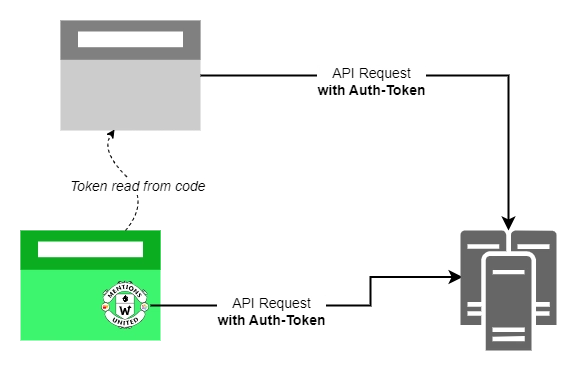Navigating the world of proxies can feel like you're walking through a maze. With so many choices, it’s easy to get lost. But here’s the deal—getting your proxy right can make all the difference. Whether you’re looking for speed, anonymity, or the ability to bypass geo-restrictions, the right proxy will unlock new levels of performance. In this guide, we’ll dive into ISP proxies and residential proxies—helping you determine which one works best for you.
What a Proxy Is and Why It’s Important
Let’s keep it simple. A proxy sits between your device and the internet, acting as a shield for your real IP address. This means you can browse anonymously, dodge geo-restrictions, and perform tasks like data scraping without risking a ban.
Why use a proxy?
Privacy: Hide your IP and protect your identity online.
Access: Unlock content from anywhere in the world.
Performance: Enjoy faster speeds for gaming or streaming.
Data Collection: Scrape valuable data without being blocked.
Now that we’ve got the basics down, let’s get into the details of ISP and residential proxies.
ISP Proxies: The Best of Both Worlds
ISP proxies blend the speed of datacenter proxies with the legitimacy of residential IPs. These proxies use IPs provided by real ISPs but are hosted in datacenters. What does this mean for you? Speed, reliability, and lower chances of getting blocked.
Key Benefits of ISP Proxies:
Fast: ISP proxies are faster than residential proxies because they’re hosted in datacenters.
Reliability: These proxies deliver consistent, high-performance results.
Legitimacy: Websites recognize ISP proxies as valid IPs, which reduces the risk of being banned.
Residential Proxies: Real Users, Real Anonymity
Residential proxies, on the other hand, use IP addresses assigned to actual homes and devices by ISPs. This means the IPs are tied to physical locations, giving you the feel of a "real user" browsing the internet.
Key Benefits of Residential Proxies:
Anonymity: These proxies offer high levels of anonymity, making it harder for websites to detect your activity.
Geo-targeting: Since the IPs come from real-world locations, they’re perfect for accessing region-specific content.
Security: Residential proxies are more difficult to detect and block, making them ideal for sensitive tasks.
ISP Proxies vs. Residential Proxies
ISP proxies and residential proxies each offer distinct advantages, depending on your needs. ISP proxies use IPs from ISPs hosted in data centers, providing faster speeds and lower costs. They are ideal for tasks such as web scraping, streaming, and gaming.
However, their anonymity is moderate, as they are legitimate but not tied to real users. Additionally, their geo-targeting capabilities are limited due to the static nature of the IPs, which may not cover specific regions.
In contrast, residential proxies use IPs assigned to real residential users, offering high anonymity by mimicking real user traffic. This makes them difficult to detect. Residential proxies excel in geo-targeting, providing precise, location-based targeting. This makes them perfect for data scraping, privacy protection, and bypassing geo-blocks. However, they are more expensive due to the advanced features they provide.
While ISP proxies are more affordable and suited for speed-dependent tasks, residential proxies are ideal for tasks that require high privacy, accurate location targeting, and the ability to bypass geo-restrictions, despite their higher cost.
When to Use ISP Proxies: Speed and Affordability
ISP proxies are perfect when you need speed without breaking the bank. Here’s how you can put them to work:
Web Scraping
ISP proxies are fast and less likely to be blocked—ideal for large-scale data collection.
Example: An e-commerce company uses ISP proxies to track competitor pricing data across multiple sites without getting flagged.
Streaming
No buffering, no interruptions. ISP proxies ensure smooth streaming experiences.
Example: A user in Asia watches US Netflix content seamlessly by connecting through an ISP proxy based in the US.
Gaming
Enjoy reduced lag and better performance when gaming across regions.
Example: A gamer in Europe uses an ISP proxy located in the US to access American game servers, drastically reducing lag and boosting performance.
When to Use Residential Proxies: Anonymity and Security
Need more security or access to region-specific content? Residential proxies are your best bet. Here’s how they shine:
Data Scraping
Their high level of anonymity makes them perfect for scraping sensitive sites without getting caught.
Example: A market research firm uses residential proxies to extract competitor data without triggering anti-scraping measures.
Privacy Protection
For users who prioritize security, residential proxies offer an extra layer of protection.
Example: A journalist in a censored country uses a residential proxy to securely access blocked websites and communicate safely.
Bypassing Geo-Restrictions
Residential proxies allow you to access content that’s locked to specific regions.
Example: A user in Europe uses a residential proxy from the UK to access BBC iPlayer and stream British TV shows.
Conclusion
Both ISP and residential proxies come with their own strengths. ISP proxies are ideal for speed and affordability, while residential proxies offer unparalleled anonymity and geo-targeting. By assessing your specific needs, you can confidently choose the right proxy type.
